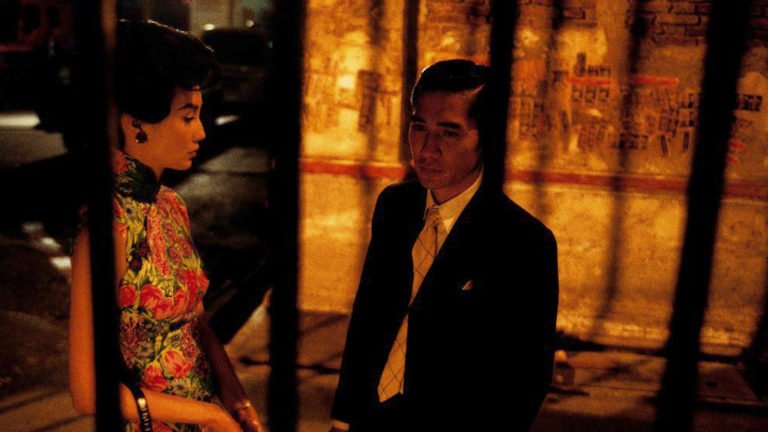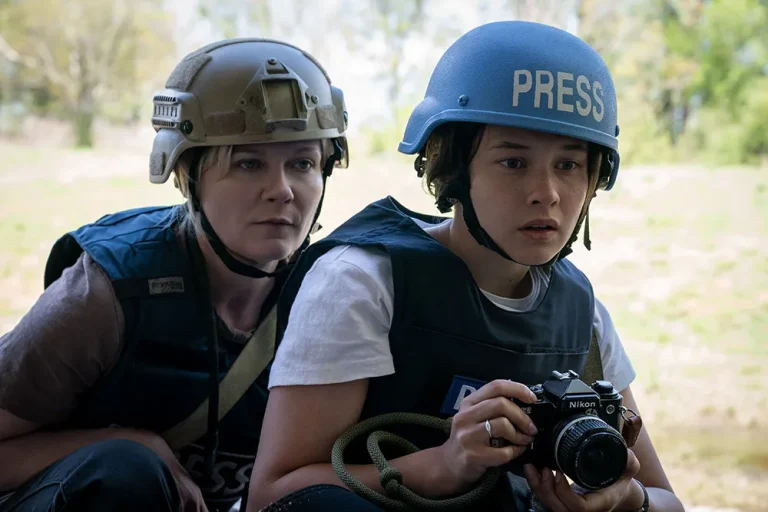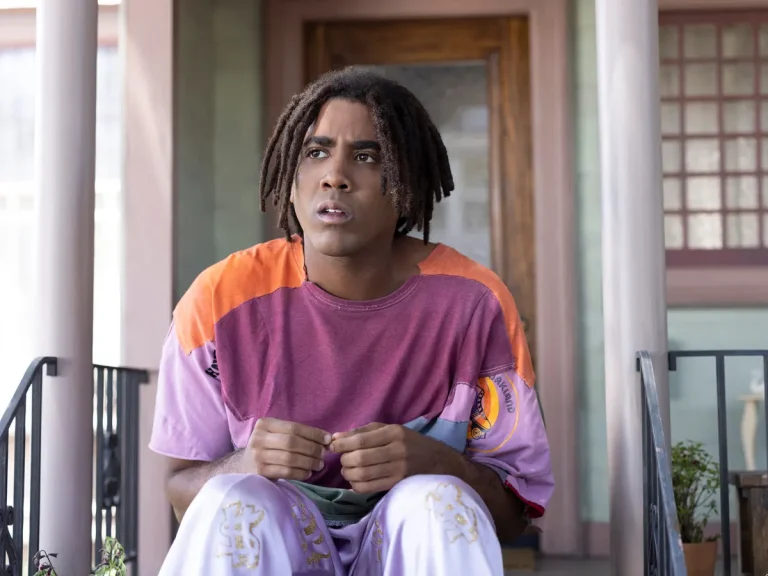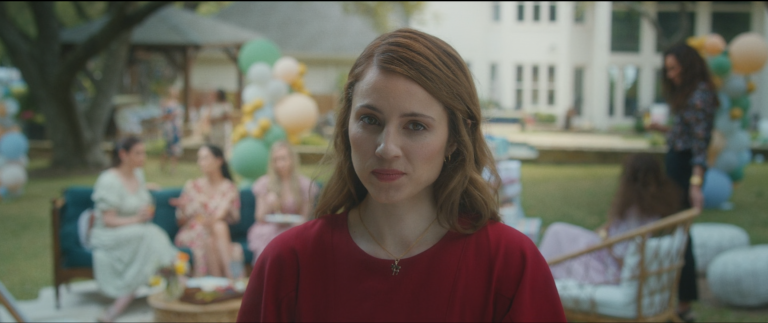There is something special to me about “Mallrats” (1995) that makes it more than just a ’90s slacker comedy. I often find myself revisiting this movie during the fall. It has the perfect blend of nostalgic suburban antics. When Kevin Smith made “Clerks,” it was like a punk zine coming to life. But “Mallrats” is where Smith found himself as a storyteller.
This film is often seen as messy, but beneath the surface of comic book-style banter lies a human story about growing up. Looking back at Kevin Smith’s filmography, this movie stands out to me as his magnum opus. It captures the moment when Smith began to translate his irreverent humor into something cinematic. There’s a genuine sincerity as an undercurrent, beneath the jokes and comic book chatter, Smith explores how people act when they’re scared to move forward.
“Mallrats” takes place almost entirely within a New Jersey shopping mall, a perfect microcosm of 90s American youth culture. It’s a temple of consumerism and wasted afternoons, but also a playground for dreamers and outcasts. This film is nostalgic for a time when the world moved at a slower pace. The movie follows two best friends, T.S. Quint (Jeremy London) and Brodie Bruce (Jason Lee), who, after being dumped by their girlfriends, spend a day wandering the mall trying to win them back.
It sounds simple, but it’s the kind of simplicity that Kevin Smith fills with an entire world of his obsessions. From the first few scenes, you can tell that Smith is doing something different from “Clerks.” The tone is more cartoonish, the energy more alive. He takes his love for pop culture, comic books, “Star Wars,” video games, and the bizarre rituals of fandom and uses it as a language for his characters to speak their truths. “Mallrats” is full of pop culture references.
Having been released 30 years ago, the humor of “Mallrats” still holds up. The film understands how, for a generation of young people raised on media, art and life get tangled up in ways that make it hard to separate what’s sincere from what’s ironic. And yet somehow, it’s always sincere. Jason Lee’s Brodie is the soul of “Mallrats.” It’s almost shocking that this was his first major acting role, because he walks through the movie like he’s been doing it his whole life. Brodie is arrogant, and yet you can’t help but like him.
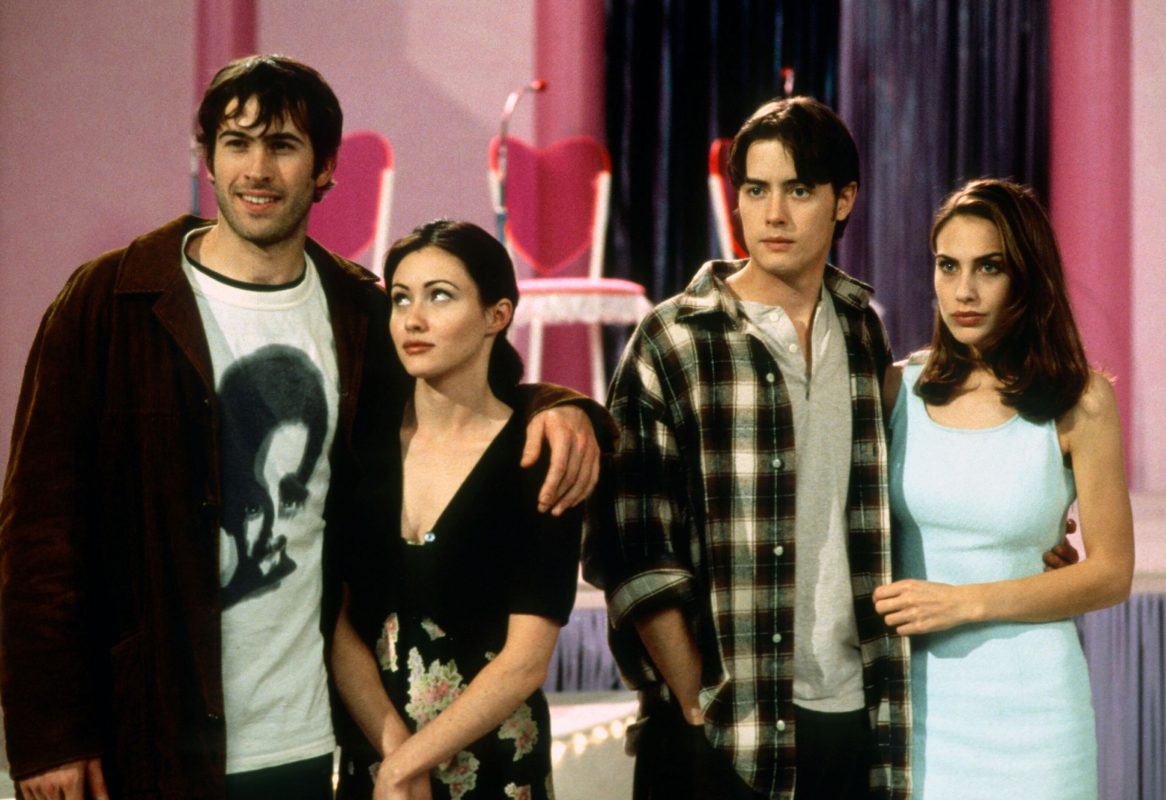
There’s a sweetness beneath his sarcasm, a kind of vulnerable laziness that hides how lost he really is. He’s not an adult, but he’s not a kid either. The mall becomes a perfect metaphor for his stunted adulthood. It’s a place where you can buy anything, but never really find what you need. T.S., on the other hand, is the romantic idealist of the film, more serious, more grounded, yet maybe just as delusional. His girlfriend Brandi (Claire Forlani) breaks up with him because he’s so caught up in his own plans for their future that he can’t see the present moment.
Brodie’s girlfriend, Rene (Shannen Doherty), leaves him because he’s emotionally unavailable, too content to hide from responsibility behind comic books and snark. Their respective breakups set the film in motion, but what Smith captures isn’t just heartbreak, but the first time these two guys realize that the world doesn’t exist solely to entertain them.
Also Read: The 10 Best Psychedelic Thrillers, Ranked
The genius of “Mallrats” is how it balances the absurd with the heartfelt. I would describe the film as zany. Which is not a word I use often. On one hand, you have a plot involving a security guard named LaFours chasing the heroes like a “Looney Tunes” character, staging an elaborate mission involving grappling hooks and blueprints. On the other hand, you have quiet moments where T.S. and Brandi reconnect on a park bench, or Brodie nervously admits that he’s afraid to grow up. The cartoonish humor never undermines the emotion but instead gives it texture.
Smith’s writing has always been character-driven, but “Mallrats” feels looser and more playful. These are the staples that made Smith’s early work so memorable. It was the sense that his characters were speaking for themselves. They talk because they care about these things, and because it’s easier than talking about their own fears. Smith’s dialogue works like camouflage; beneath the pop culture noise is a real anxiety about becoming irrelevant, about aging out of the places that once defined you. Stan Lee has a memorable cameo in this film, delivering lines about “the love that got away” and superheroes that he created out of heartbreak.
And then of course we have Jay and Silent Bob, the tricksters, the chaos agents of Smith’s cinematic universe. In “Clerks,” they were background figures. In “Mallrats,” they become iconic. Every time they appear, the movie lifts off the ground into pure absurdity. Yet even they feel oddly genuine. Jay’s hyperactive enthusiasm and Bob’s silence are the yin and yang of this world: the voice that never shuts up and the one that says nothing. There’s something comforting about the way Smith creates a shared universe across his films, but “Mallrats” feels like the best expression of it.
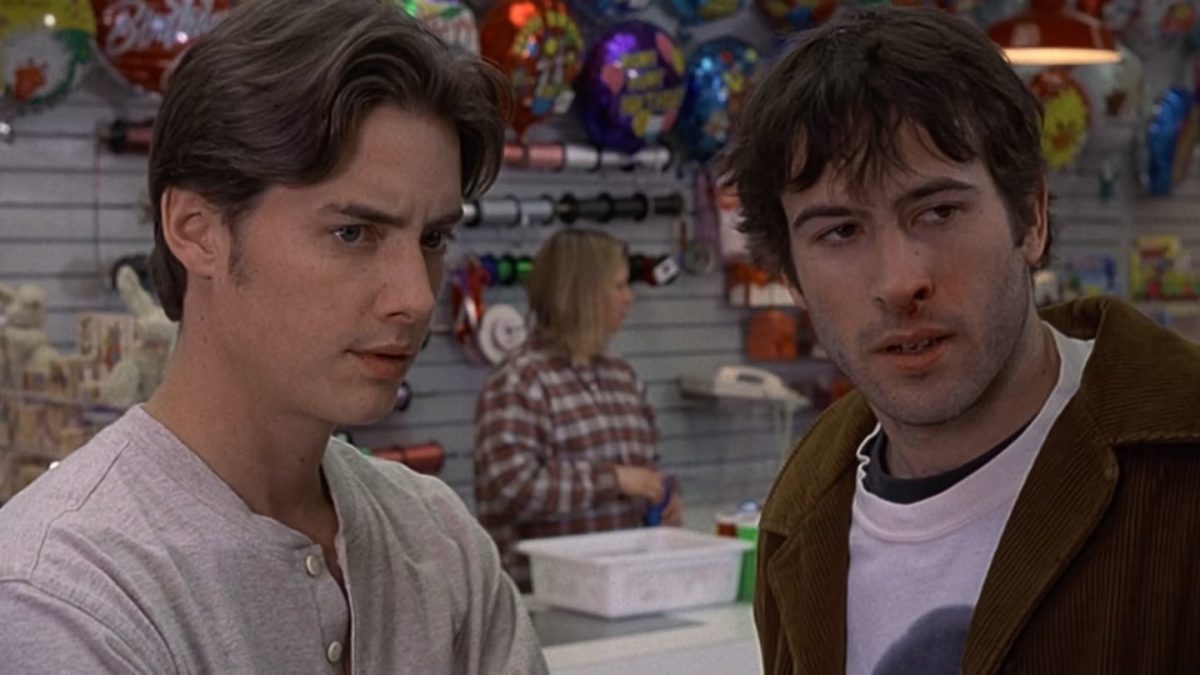
It’s a love letter not just to movies, but to the kind of friendships that are built on shared references, inconsiderate jokes, and hanging around the same spaces day after day. Before the social media age, you found friends by hanging out at the mall. The mall was both sacred and pathetic. It was a place where love stories unfolded and friendships were tested. Watching “Mallrats” today, in an era where malls are disappearing and online spaces have replaced the real ones, this movie feels nostalgic for a world that no longer exists. It reminds you that connection still happens by accident. You can still meet the love of your life in a bookstore on a rainy day.
Kevin Smith directs with a unique blend of confidence. He’s not trying to make something perfect; he’s trying to make something alive. You can feel his affection for every character, no matter how flawed. That is part of the charm. Even the antagonists, like Brandi’s father (Michael Rooker) or the TV host (Ben Affleck), have a cartoonish demeanor. The film’s pacing is erratic at times. It feels like a day spent at the mall.
Full of strange encounters that somehow add up to something meaningful by the end. Smith captures that feeling with humor and heart, without ever pretending it’s more profound than it is. He lets it be messy, and that’s what makes it feel real. There’s something admirable in how uncalculated “Mallrats” feels. This film is not trying to impress; it’s trying to connect. And for a movie that’s supposedly about “nothing,” it ends up being about everything that matters when you’re in your twenties.
Though “Mallrats” never achieved the same critical standing as “Clerks” or “Chasing Amy,” it remains, for many viewers, the most enjoyable, the most fun, and possibly the most sincere of Kevin Smith’s initial features. The film is pure cinematic comfort food. It tells the story of people who linger in one place when they ought to be doing something productive, and the genuine realization that those idle days were actually time well spent.
If you’ve ever gone through a period of time where you had aimless friends, then this film is for you. For all its goofiness, “Mallrats” understands the melancholy of being young in a world that doesn’t make sense yet. It’s a movie about staying too long in a place that’s slowly fading. It’s a movie that captures that intersection between youth and adulthood, where everything feels like a joke until suddenly it doesn’t.


